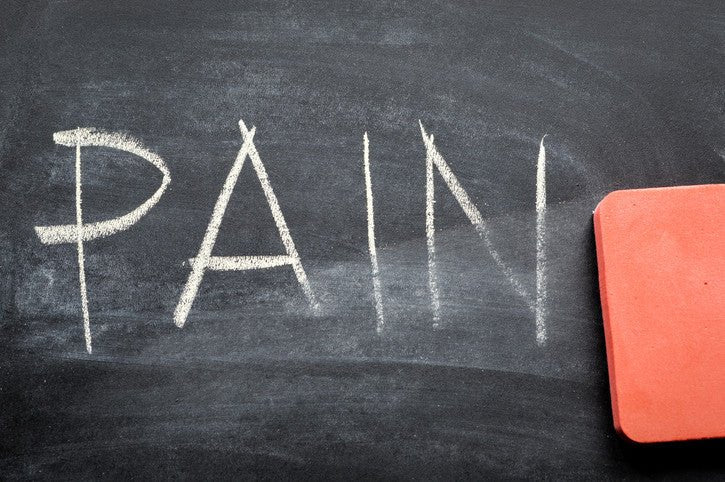
End Pain And Severe Medical Conditions With Vitamin B12 Rich Foods!

What harm can having too little vitamin B12 do? Consider this: Over the course of two months, a 62-year-old man developed numbness and a "pins and needles" sensation in his hands, had trouble walking, experienced severe joint pain, began turning yellow, and became progressively short of breath. The cause was lack of vitamin B12 in his bloodstream,
according to a case report from Harvard-affiliated Massachusetts General Hospital published in The New England Journal of Medicine. It could have been worse—a severe vitamin B12 deficiency can lead to deep depression, paranoia and delusions, memory loss, incontinence, loss of taste and smell, and more.
Why vitamin B12 is important
The human body needs vitamin B12 rich foods, to make red blood cells, nerves, DNA, and carry out other functions. The average adult should get 2.4 micrograms a day. Like most vitamins, B12 can't be made by the body. Instead, it must be gotten from food or supplements.
And therein lies the problem: Some people don't consume enough vitamin B12 to meet their needs, while others can't absorb enough, no matter how much they take in. As a result, vitamin B12 deficiency is relatively common, especially among older people.
Are you at risk of vitamin B12 deficiency?
There are many causes for vitamin B12 deficiency. Surprisingly, two of them are practices often undertaken to improve health: a vegetarian diet and weight-loss surgery.
Plants don't make vitamin B12. The only foods that deliver it are meat, eggs, poultry, dairy products, and other foods from animals. Strict vegetarians and vegans are at high risk for developing a B12 deficiency if they don't eat grains that have been fortified with the vitamin or take a vitamin supplement. People who have weight-loss surgery are also more likely to be low in vitamin B12 because the operation interferes with the body's ability to extract vitamin B12 from food.
For vegetarians looking to increase their vitamin B12 intake
There are a variety of options. Some good choices for B-12 include:
- yogurt
- low-fat milk
- fortified plant-based milk
- cheese
- eggs
- fortified cereals
-
nutritional yeast
While seaweed, algae, and certain mushrooms all contain a small amount of vitamin B-12, more research is needed to assess amounts and bioavailability.
A vegetarian should be sure to consume enough of the following foods on a regular basis. It is vital to understand how much vitamin B-12 these foods contain:
- 8 ounces (oz) of yogurt contains about 1.1 mcg of vitamin B-12
- 1 cup of low-fat milk can provide 1.2 mcg of vitamin B-12
- 1 oz of Swiss cheese can contain 0.95 mcg of vitamin B-12
- 1 large egg contains 0.6 mcg of vitamin B-12
Nutritional yeast is popular with both vegetarians and vegans because it is easy to add to dishes while cooking and has a rich, cheesy, nutty flavor. Nutritional yeast can be added to cooked meals or sprinkled on food and snacks.
Conditions that interfere with nutrient absorption, such as celiac or Crohn's disease, can cause B12 Trouble. So can the use of commonly prescribed heartburn drugs, which reduce acid production in the stomach (acid is needed to absorb vitamin B12). The condition is more likely to occur in older people due to the cutback in stomach acid production that often occurs with aging.
Vitamin B12 deficiency symptoms
Vitamin B12 deficiency can be slow to develop, causing symptoms to appear gradually and intensify over time. It can also come on relatively quickly. Given the array of symptoms a vitamin B12 deficiency can cause, the condition can be overlooked or confused with something else. Vitamin B12 Deficiency symptoms may include:
- strange sensations, numbness, or tingling in the hands, legs, or feet
- difficulty walking (staggering, balance problems)
- anemia
- a swollen, inflamed tongue
- difficulty thinking and reasoning (cognitive difficulties), or memory loss
- weakness
- fatigue
While an experienced physician may notice the symptoms and be able to detect a vitamin B12 deficiency with a good interview and physical exam, a blood test is needed to confirm the condition.
It's a good idea to ask your doctor about having your B12 level checked if you are a strict vegetarian or have had weight-loss surgery or have a condition that interferes with the absorption of food.
Early detection and treatment is important. If left untreated, the deficiency can cause severe neurologic problems and blood diseases.
Boosting your B12
A serious vitamin B12 deficiency can be corrected two ways: weekly shots of vitamin B12 or daily high-dose B12 pills. A mild B12 deficiency can be corrected with a standard multivitamin.
In many people, a vitamin B12 deficiency can be prevented. If you are a strict vegetarian or vegan, it's important to eat breads, cereals, or other grains that have been fortified with vitamin B12 or take a daily supplement. A standard multivitamin delivers 6 micrograms, more than enough to cover the average body's daily need.
What vitamin B12 can't do
The internet is full of articles lauding the use of vitamin B12 to prevent Alzheimer's disease, heart disease, and other chronic conditions or reverse infertility, fatigue, eczema, and a long list of other health problems. Most are based on poor or faulty evidence.
Take Alzheimer's disease as an example. Although there is a relationship between low vitamin B12 levels and cognitive decline, clinical studies—including those involving people with Alzheimer's disease—have not shown improvement in cognitive function, even doses of vitamin B12 as high as 1000 micrograms per day.
For now, it's best to get enough vitamin B12 to prevent a deficiency, and not look to it as a universal solution for everything
content source:
